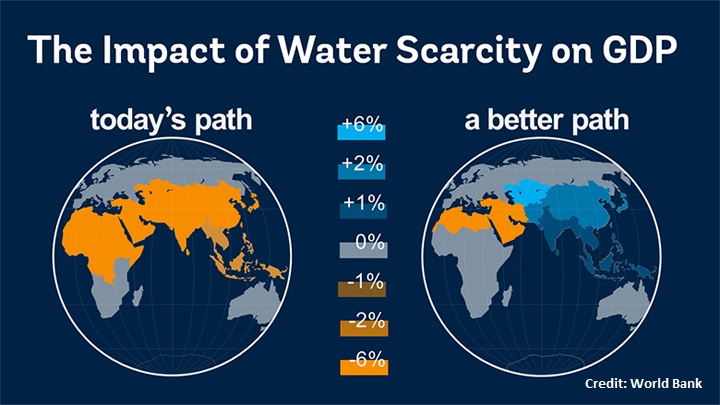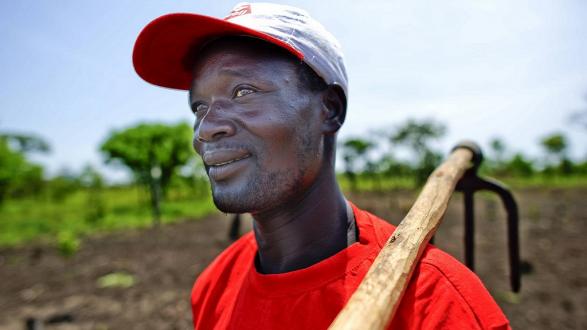Countries faced with limited access to fresh water resources could see their growth rates decline by as much as six percent by the year 2050, according to a new report from the World Bank.
The report, “High and Dry: Climate Change, Water and the Economy,” found that these declines occur due to water-related losses in agricultural development, health and education services, income, and property, as well as the increase of conflict. Economies located in arid regions such as sub-Saharan and northern Africa and the Middle East, and even in large parts of Asia face the threat of “sustained negative growth” unless efficient water management policies are put in place.
“When governments respond to water shortages by boosting efficiency and allocating even 25 percent of water to more highly-valued uses, losses decline dramatically and for some regions may even vanish,” said World Bank Lead Economist Richard Damania. “Improved water stewardship pays high economic dividends.”

But water scarcity will hit poorer communities and regions harder than others. India and China, for example, could see their GDPs drop by as much as six percent if they fail to act; other countries already suffering under the weight of severe drought, like Mali and Sudan, face that decline even if they establish improved water policies.
The report states that these vulnerable places face a daunting future because they are "likely to rely on rain-fed agriculture to feed their families, live on the most marginal lands which are more prone to floods, and are most at risk from contaminated water and inadequate sanitation.”
The report ends by calling on all countries to enact smart water policy, which “is fundamental to smart climate policy and smart development policy.”
If climate change models prove correct, the report finds, water scarcity “will proliferate to regions where it currently does not exist, and will greatly worsen in regions where water is already scarce.”
“Water scarcity is a major threat to economic growth and stability around the world, and climate change is making the problem worse,” warned World Bank President Jim Yong Kim.
The report ends by calling on all countries to enact smart water policy, which “is fundamental to smart climate policy and smart development policy.”
Read the full report here.
____________________
Want more on water? Meet Rachel Cardone, our Global Water Scarcity Project Fellow. Rachel will lead a comprehensive planning effort to scope the objectives and activities of the Pacific Council’s future policy work on global water scarcity.
Learn how you can directly contribute to the Pacific Council's work around global water scarcity. Support us now.




